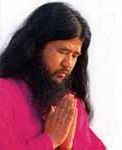
Aum Shinri-kyo and Related Controversies

Aum Shinri-kyo and Related Controversies
A former Aum Shinrikyo member testified in court Friday that cult founder Shoko Asahara ordered him in 1994 to manufacture 1,000 machineguns.
Kenichi Hirose was speaking at Asahara's 164th trial session at the Tokyo District Court, during which the cult's alleged manufacture of firearms was brought up for the first time.
Hirose, who is being separately tried on the gun-manufacturing charge, said Asahara ordered him and Masato Yokoyama, a senior member of the cult who was sentenced to death in October, to produce 1,000 machineguns in February 1994.
"I was not surprised when I received the order, because I myself thought the weapons were necessary to fulfill (Aum's) doctrine," said Hirose, citing the cult's teaching that it is better for those who do not respect the cult to be killed.
Prior to giving the order, Asahara sent Hirose and four other cult members to Russia in February 1993 to study how to make the Russian Army's AK-74 as well as to purchase parts for the weapon, he said.
After numerous attempts, Hirose and Yokoyama finally built a prototype machinegun -- an imitation AK-74 -- by Jan. 1, 1995. Asahara, who, the cultist said, looked impressed with the gun, then ordered Hirose to make bullets for it, while asking Yokoyama to make bigger weapons, he said.
The machinegun, confiscated by police from Aum's facility in Yamanashi Prefecture in May 1995, is believed to be crude and useless.
The district court is scheduled to hand down its rulings Monday on Hirose and two other former cultists involved in the 1995 sarin gas attack on the Tokyo subway system. Prosecutors have demanded capital punishment for his alleged releasing of sarin gas in the attack.
TOKYO, July 4 (Kyodo) - The AUM Shinrikyo cult will pay some 4.1 billion yen in compensation to victims of its crimes, AUM's bankruptcy administrator said Tuesday.
Lawyer Saburo Abe told reporters in Tokyo the cult has agreed to provide the full remaining amount of compensation and that he and group representatives will sign a document of agreement on Thursday.
Although Abe once approved the idea of AUM selling personal computers so that it could earn money to pay compensation to victims of its crimes, the item was left off the final agreement in consideration of the victims' feelings, Abe said.
He added, however, that he will issue a written request to the cult to make transparent the details of all of its business activities, including personal computer sales.
The final agreement spells out AUM's payment schedules, including repaying 960 million yen of the total in the coming five years to complete its bankruptcy procedures. Of the amount, 200 million yen will be provided by the end of June next year and at least 100 million yen will be paid per year thereafter, Abe said.
Following the payment of the 960 million yen, the rest of the amount will be transferred to a relief fund for victims of the 1995 sarin gas attack on the Tokyo subway and other AUM crimes.
In May, Abe reached a basic agreement with AUM members over compensation to victims, but those representing the victims opposed the inclusion of approval of AUM to conduct the business of selling PCs as a means to make money.
On the exclusion of the item in the final agreement, Abe said, ''The group's followers have the freedom to choose what business to engage in, and so the matter is beyond my capacity as bankruptcy administrator.''
Yuji Nakamura, a lawyer representing victims of the Tokyo subway gassing, said the agreement is ''regrettable'' because it goes against calls by the victims for disbanding the cult as it is based on the premise that the cult will continue to exist.
''On the other hand, there are victims who are suffering economically as a result of the aftereffects (of damages incurred in the AUM crimes). It is natural to have the perpetrator reimburse the money,'' Nakamura said.
Cult spokesman Hiroshi Araki said the agreement ''will force the group's followers to shoulder considerable financial burdens, but it is absolutely necessary in continuing to show our sincere intention to apologize to and compensate the victims and their bereaved families.''
Araki explained that AUM, which changed its name to ''Aleph'' earlier this year, is currently not engaged in a full-fledged business, so it will have to combine the funds it raises from its religious activities with any profits made in other undertakings.
AUM founder Shoko Asahara, whose real name is Chizuo Matsumoto, is on trial on murder and other charges in 17 criminal cases, including the 1995 sarin gas attack on the Tokyo subway system, which killed 12 people and left more than 5,000 ill.
Back to the CESNUR Page on Aum Shinri-kyo and Related Controversies
![]()
[Home Page] [Cos'è il CESNUR] [Biblioteca del CESNUR] [Testi e documenti] [Libri] [Convegni]
[Home Page] [About CESNUR] [CESNUR Library] [Texts & Documents] [Book Reviews] [Conferences]
![]()
Revised last: